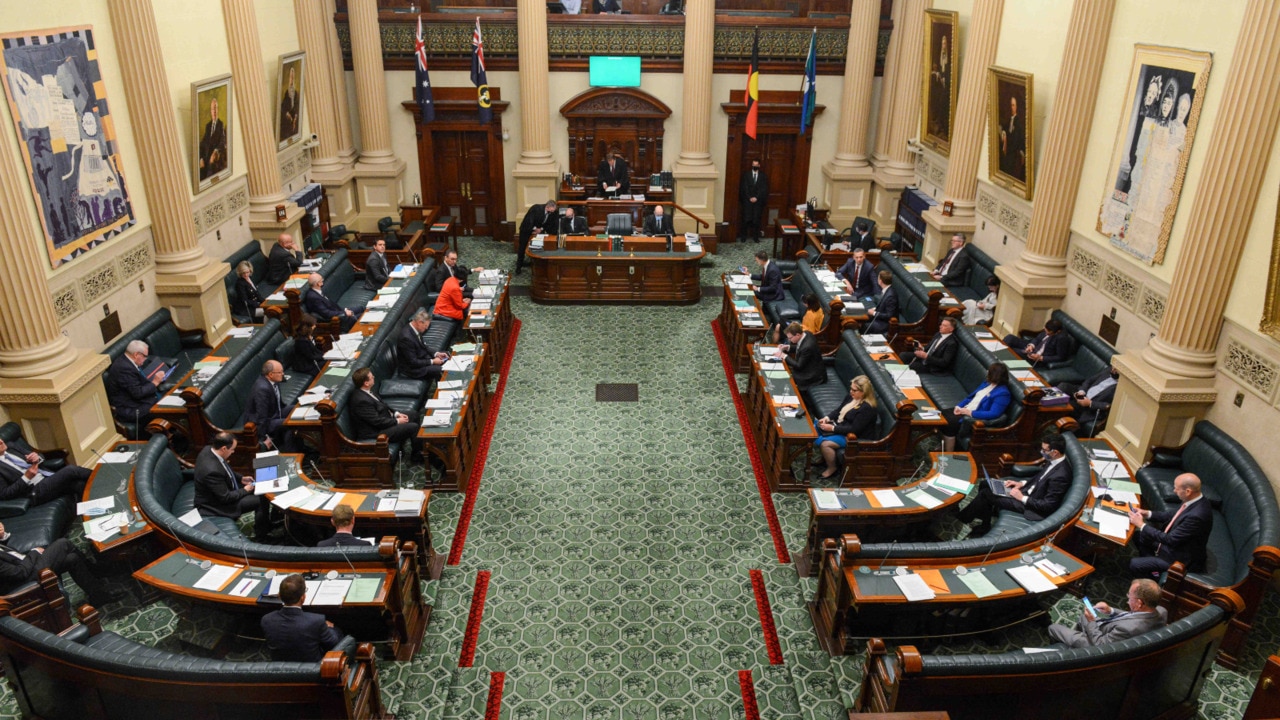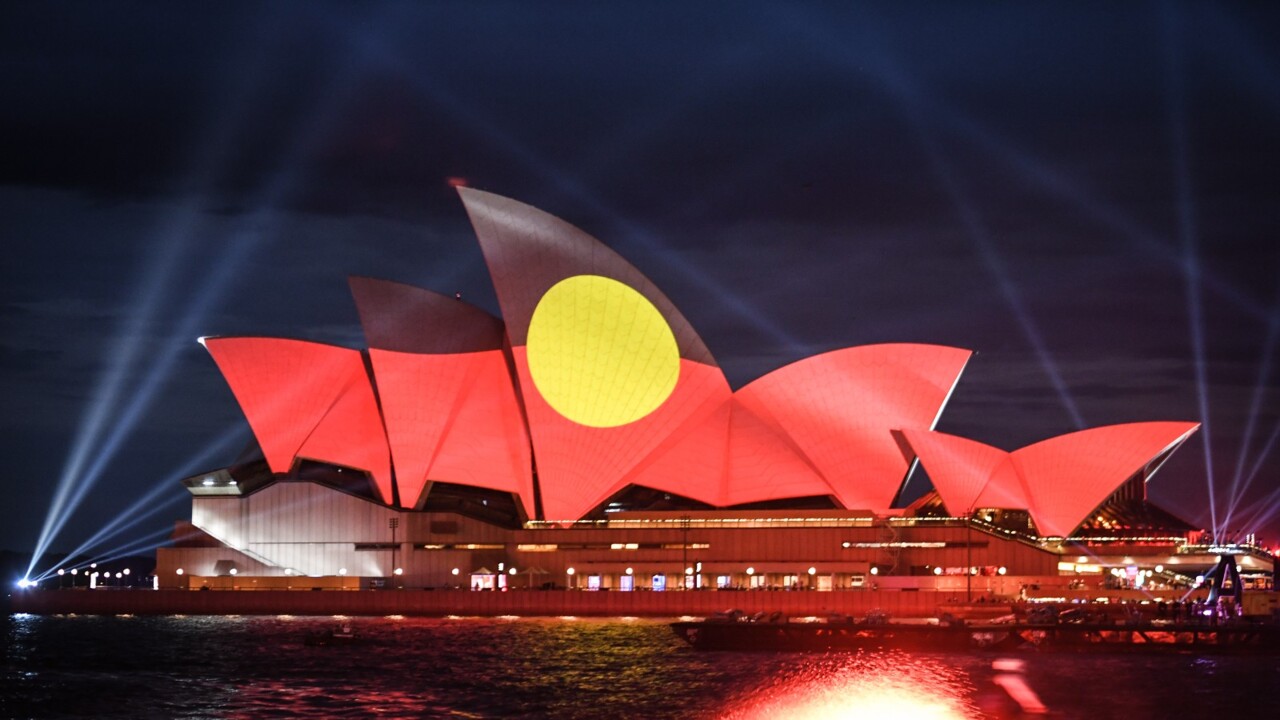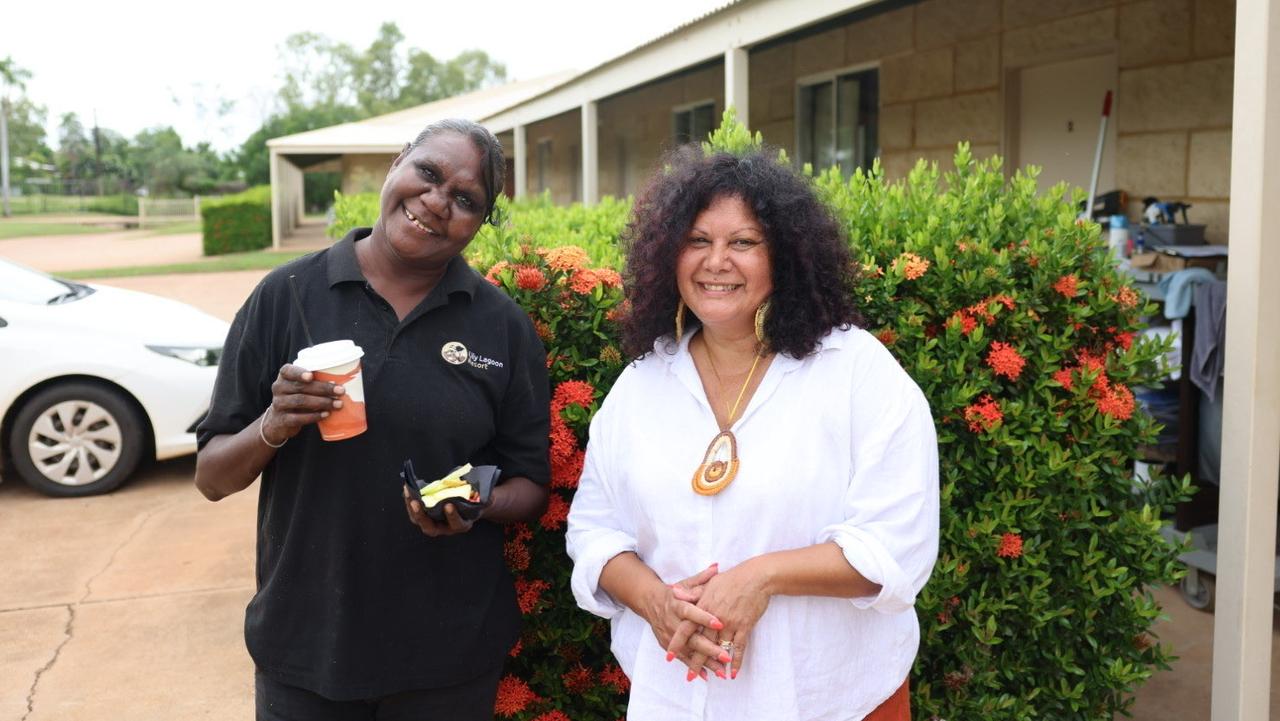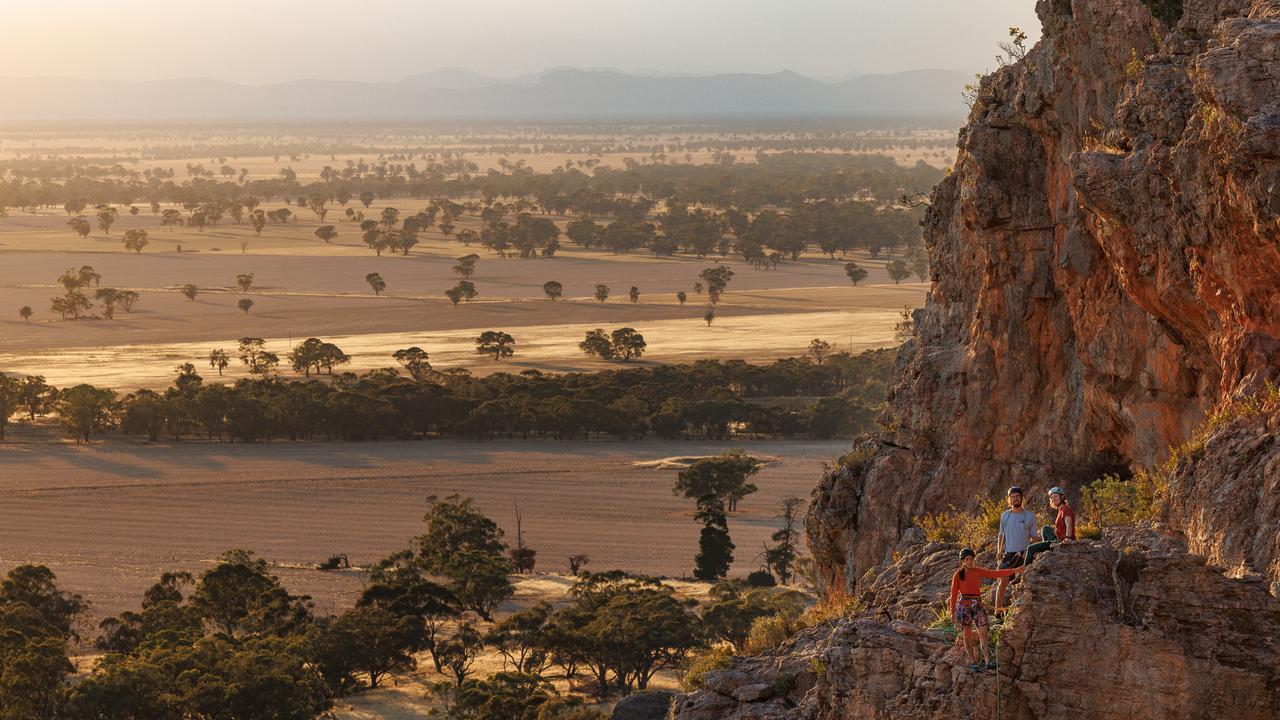Professor Megan Davis declares: ‘you won’t shut the Indigenous voice to parliament up’
The Indigenous body will speak to ‘all parts of the government’ including the cabinet, ministers, public servants as well as the RBA, says Megan Davis.

Parliament will not be able to “shut the voice up” and the Indigenous body will speak to “all parts of the government” including the cabinet, ministers, public servants as well as statutory offices and agencies from the Reserve Bank to Centrelink, according to top referendum working group member Megan Davis.
A key architect of the Uluru Statement From the Heart and one of six members of the working group that negotiated the final wording of the constitutional amendment with the government, Professor Davis said parliament could not stop the voice from making representations or “shut the voice up”.
The clarification on the broad remit of the Indigenous voice comes after Anthony Albanese this week argued that parliament would have primacy over “what the voice will consider” – a remark that was corrected by legal experts who explained this would be beyond the reach of politicians.
Labor members of a new parliamentary committee testing the wording of the Prime Minister’s proposed constitutional amendment said they hoped the inquiry would rebuff criticisms from “naysayers and doomsayers” and bolster the Yes campaign.
Noel Pearson, a champion of constitutional recognition for Indigenous Australians, said he was confident the nation was heading towards success and that negotiations over the wording of the constitutional amendment had “landed in a very sweet spot”.
Mr Pearson said Professor Davis had “always been our leader in relation to the constitutional law” and was “our most expert spokesman on the drafting.”
Professor Davis and fellow constitutional law expert Gabrielle Appleby from UNSW, writing in The Weekend Australian, argue that the new body will not be “limited to matters specifically or directly related to Aboriginal and Torres Strait Islander peoples” and it will have the power to “speak on a broad range of matters”.
“That is the point,” the professors write.

Professor Davis, UNSW’s Balnaves chair in constitutional law, and Professor Appleby say the voice could advise government across the policy spectrum from environment and climate to defence or financial matters, but stress that it should choose where it makes its representations carefully.
“It would include matters relating to the conduct of elections, given the under-enrolment of First Nations people in our electoral system,” they say.
“It would include criminal matters, given the over-representation of First Nations in our criminal justice system.
“It’s important that the voice speaks not just on matters that directly, or explicitly, affect Aboriginal and Torres Strait Islander people, but on matters that have an indirect but significant effect on them.”
The pair say that, if the voice speaks on more general matters, such as financial policy or defence, its representations will be “weighed up against a number of other interests and groups” and have less political persuasion. “It will have to spend its political capital wisely,” the professors write.

“The voice will be able to speak to all parts of the government, including the cabinet, ministers, public servants, and independent statutory offices and agencies – such as the Reserve Bank, as well as a wide array of other agencies including, to name a few, Centrelink, the Great Barrier Marine Park Authority and the Ombudsman – on matters relating to Aboriginal and Torres Strait Islander people.
“This isn’t to be feared.”
The Coalition is concerned by the wording in the constitutional amendment that gives the voice the power to advise the executive government.
Leading Liberal moderate Simon Birmingham signalled his hope for this to be reconsidered in the parliamentary committee process. “By putting it in the Constitution, it does then provide another layer of wording that can be contested through High Court challenges where constitutional challenges are heard,” Senator Birmingham told the ABC.
Labor MP Shayne Neumann, who has been appointed to the committee, said the inquiry should help to smooth over concerns with the existing wording.

“I hope the naysayers and doomsayers and people engaged in jeremiads will have that information rebutted in the course of this inquiry,” Mr Neumann said.
Liberal committee member Keith Wolahan said the inquiry was as close to a “constitutional convention” as the nation would get. “The committee should waste no time in properly testing the wording and exploring in an honest way all of the constitutional risk that should be considered – and there’s certainly constitutional risk in that wording,” Mr Wolahan said.
South Australian Liberal senator Kerrynne Liddle, another member of the committee, said the inquiry needed to provide for a range of voices to be heard, including controversial figures such as Human Rights Commissioner Lorraine Finlay who faced a backlash against her concerns over the voice this week.
Ms Finlay, who was appointed to her role by the Morrison government and a former Liberal candidate, wrote in The Australian this week that the new constitutional amendment went beyond the UN Declaration on the Rights of Indigenous Peoples and possibly conflicted with other international human rights agreements.
Senator Liddle said Ms Finlay was entitled to her views and was “hopeful that people like commissioner Finlay would feel comfortable expressing their view in what would be a safe, respectful environment to do so”.
Victorian Labor senator and committee member Jana Stewart said she hoped to see “a broad representation of witnesses appear before the committee”.
“I hope to see respectful and robust conversation. The Australian people deserve nothing less,” she said.
Committee members said key players in the national debate over the voice — including Mr Pearson, Professor Davis and other legal experts – should appear before the inquiry to have their arguments “explored and tested”.
In their piece, Professor Appleby and Professor Davis said the broad remit of the voice would restrict rather than increase the chance of legal challenges.






